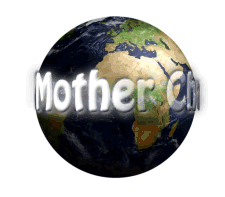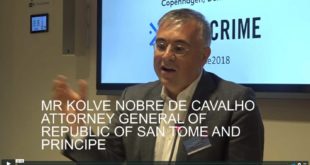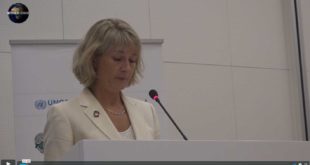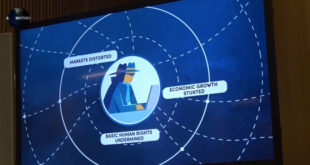Aliou: My name is Aliou Sall, coming from Senegal, West Africa. I’m a Fisheries social anthropologist. When I talk about fisheries, I’m referring to small scale fisheries.
Judy: That’s the kind of fisheries that we believe are most sustainable are small scale fisheries.
Aliou: Yes of course. It’s the most sustainable because even if communities that depend on small scale fisheries have to sell part of their catches as part of their purpose, for school, for their children and for some social needs. It’s a cultural activity also. It’s a way of living. Meaning that small scale fisheries come to be as you know, bad, as it is not possible as an industrial fleet. Small scale fisheries used to be a selective activity. With industrial fishing, for example, based on some statistics, that is official and validated by all these International organisations, even those depending on the United Nations, says that on one kilogram of shrimp, an industrial fleet, you have about 10 kilograms of fish thrown away, whereas, in small scale fisheries, everything is of value.
Judy: In your small scale fisheries, are there fishes that are getting to a stage where they are becoming to overfished to be permanently available. Has small scale fishing in areas where there is only small scale fishing, is it looking like the resources are declining.
Aliou: Of course. The best illustration of that is the increase in conflict. In countries like Senegal, who is the victim of a combination of two factors. On one hand, we are one of the biggest small scale fisheries countries. It is important, culturally speaking in our country. It is something very special compared to other countries. So one hand it is very important, at the same time during decades, our government has been signing fishing agreements with foreign countries…
 Mother Channel Environmental, climate change news and media.
Mother Channel Environmental, climate change news and media.



